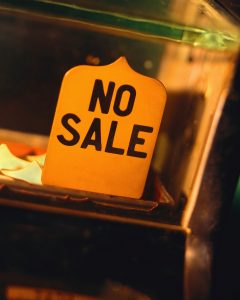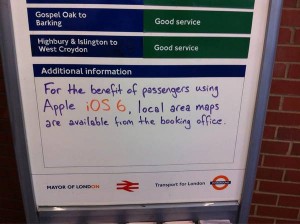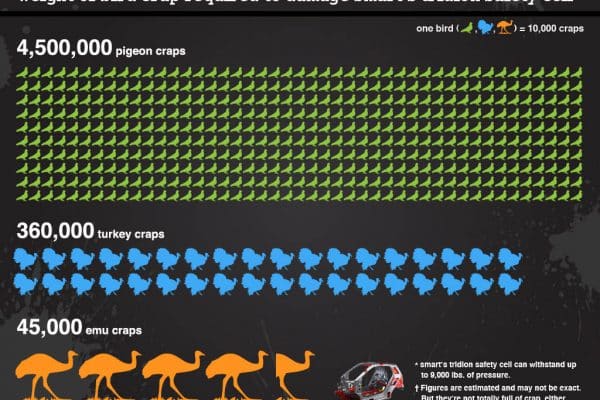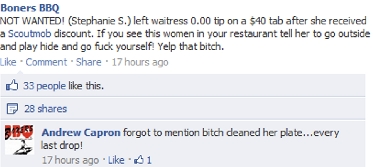There must have been something in the water this August. Brands near and far were tripping over themselves be accused of sexism. Maybe some witnessed the brief national and social media anger that erupted over the Madhouse trousers back in March. I can just imagine someone chewing on the end of their cigar, thinking “I’ll have me some of that”.
As is traditionally the way with sexism, many of these faux pas will be seen as harmless joviality cruelly misinterpreted by moaning, cynical old cat ladies (well, I’m not that old). Yet, the idea is that brands create positive engagement with people, not negative.
Nike: Gold Digging
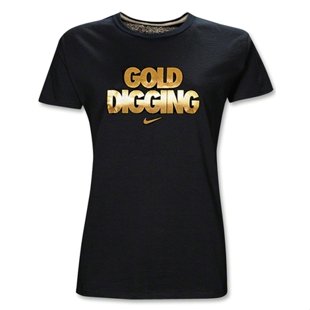
Nike, not a sponsor of the London 2012 Olympic Games, has been accused of ambush marketing – getting around the LOCOG brand restrictions by designing cleaver ads that screamed Olympics, yet didn’t feature any of the restricted words or symbols. It looks like it tried the same trick with the above ladies’ T-Shirt.
News sites and bloggers reported on it, people debated how offensive or funny it was on Facebook, and some were still tweeting about it two weeks after the story appeared on blogs.
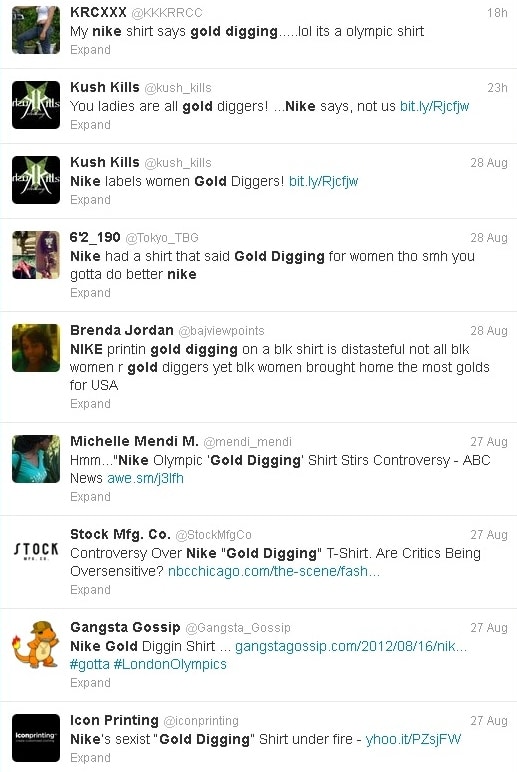
Nike’s response? “Nike has consistently supported female athletes and the position they enjoy as positive role models. The T-shirt uses a phrase in an ironic way that is relevant given it was released just as the world focused on the success of female athletes.”
People have the right to be offended by whatever they like, and brands – like people – don’t need to apologise every time someone gets the wrong end of the stick and attributes the wrong meaning to something. No one is saying that brands shouldn’t push boundaries either. It would be a pretty boring world if every message or product was wrung dry of all humour before being approved. Yet, if a product or statement gets released into the wild and it does get such a negative response, the smart thing for a brand to do would be to apologise for any offense caused, as well as reinforce its core messages. What Nike did was more along the lines of chucking its hands in the air and saying “Whoa, you’re all wrong. This is funny.”
BMW: free car fracas
This is one of those perfect storm reputation problems. BMW decided to give selected Olympic athletes free BMW’s leased for two years. In the majority of cases, dealers selected local competitors to receive the free car.
Twitter went a bit bonkers when a BBC Newsnight interview revealed that while many of the men’s rowing medal winners got free cars, none of the women’s team did.
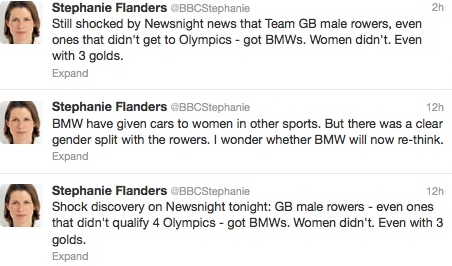
BMW responded with a statement, and on Twitter:
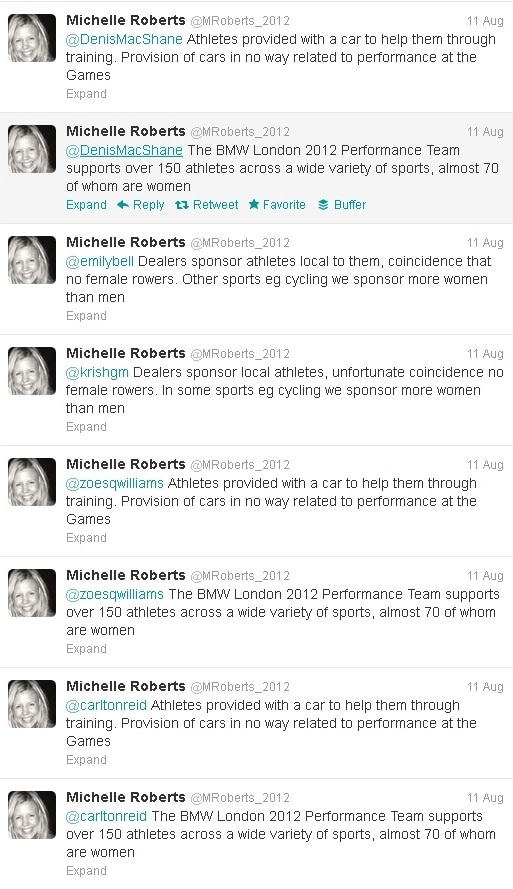
The brands strategy is clear, @mention high profile tweeters with sentences from the prepared statement. In one way, this is a good plan. The brand gets its message straight to the people who can disseminate the information. But the brand runs the risk of looking impersonal and overly corporate.
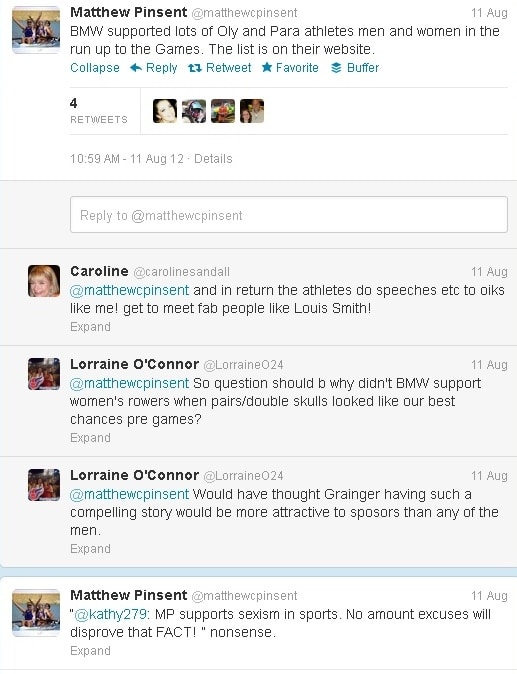
The person that did the best job was someone not connected to, or being sponsored by, the brand at all. Matthew Pinsent found himself fielding questions and responding to comments about BMW being sexist. He came to the brand’s defence and directed people to its website, which listed all of the athletes it did sponsor. He also pointed out that the women rowers were never on “Team BMW” (because, we must assume, the local dealers simply didn’t pick them).
If the brand was being sexist, it was at a dealership level and it may want to reconsider how it organises sponsorships in the future. It also needs to take a look at how people engage on Twitter. We want to talk: to a real person that responds with their own words rather than a prepared statement. Someone who can be engaging and informative. Maybe BMW should consider recruiting an athlete as a brand ambassador for RIO 2016.
Sexist magazine racks
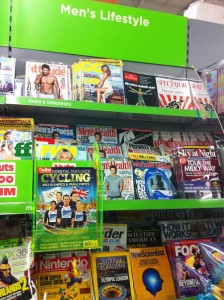
The @everydaysexism project hasn’t been around that long, but the Twitter account and website have received thousands of reports of sexism, ranging from the small stuff that largely goes unnoticed to cases of people being verbally and physically abused on streets, public transport…basically anywhere (even schools). One of the issues flagged up by the accounts followers was the way supermarkets and certain high street retailers categorised their magazines.
Like sport? Science? Gaming? History? Maybe politics is your thing? Well, then you must be a man. For ladies like only celebs, diets, babies, weddings, home decorating and knitting.
Twitter wasn’t pleased.
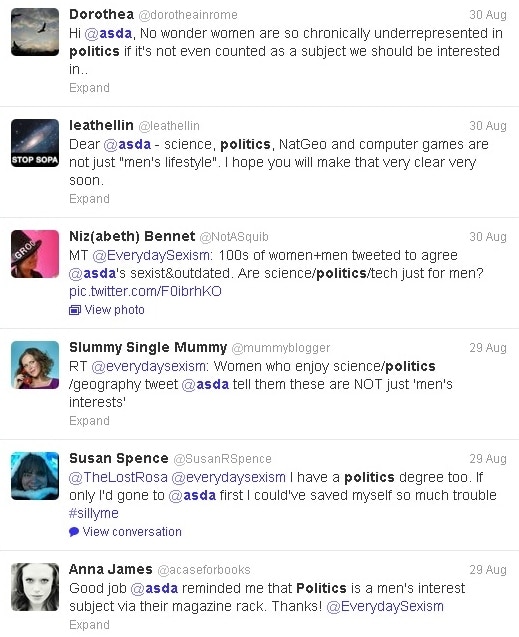
By this stage Asda was the final supermarket to respond to @EverydaySexism, and every day that the account went without an official response was a day that it called on followers to tweet their objections. Asda had days of negative social sentiment because of the time it took to reply. As soon as it did, the campaign account informed followers and the situation calmed down.

Like all avoidable crises, the best thing to do here would have been not to categorise magazines by gender in the first place. However, mistake made, the only thing the brands involved could do was respond quickly and make the changes that needed to be made. In situations like these fast response and action is vital to protect the brand’s reputation.
BIC: Finally, women are allowed to use pens!
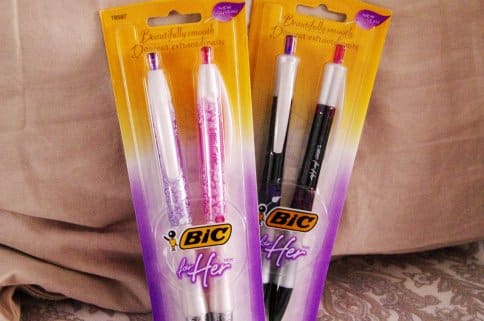
If there’s one thing that you would think would be gender neutral it’s the simple pen.
Oh BIC.
Why?
Why did you do this? Did you really want these Amazon.com reviews?
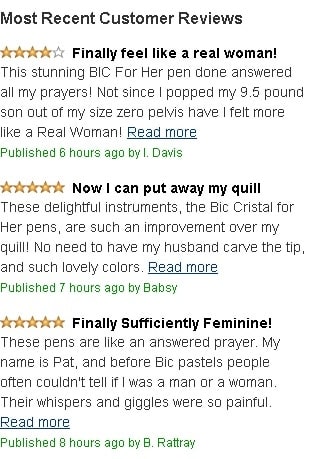
Or these reviews from Amazon.co.uk?
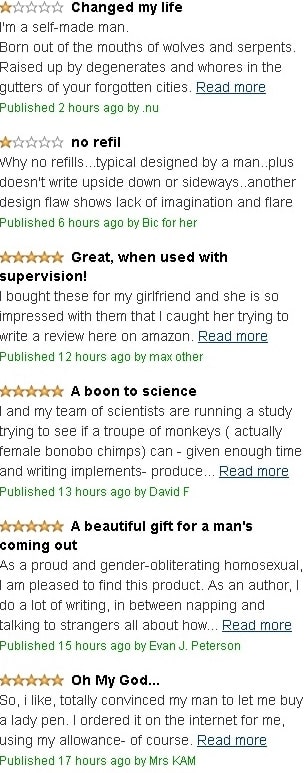
Did you secretly crave this kind of mocking coverage? Or Tweets like these?
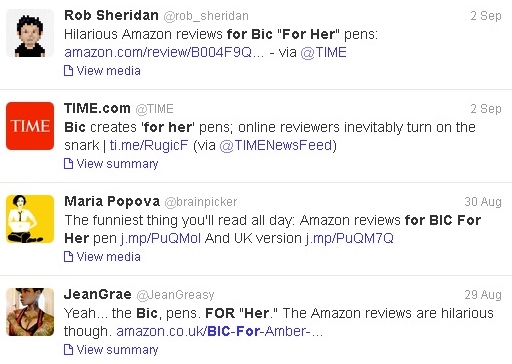
It looks like BIC has gone into hiding. It hasn’t responded to requests for comment, or replied to any of the posts on the official Facebook page.
There was also the dating site that sent out a press release citing the Dark Knight Massacre and telling the ladies their survey says rich men are more likely to take a bullet for them – yes, really. Unsurprisingly, the site – which shall not be named here – is all about bidding for dates. Less a case of social fail, more a moral one. Stay classy.
I’d be interested to hear about any other notable social media fails from August. Unfortunately, something tells me there were plenty of others.


